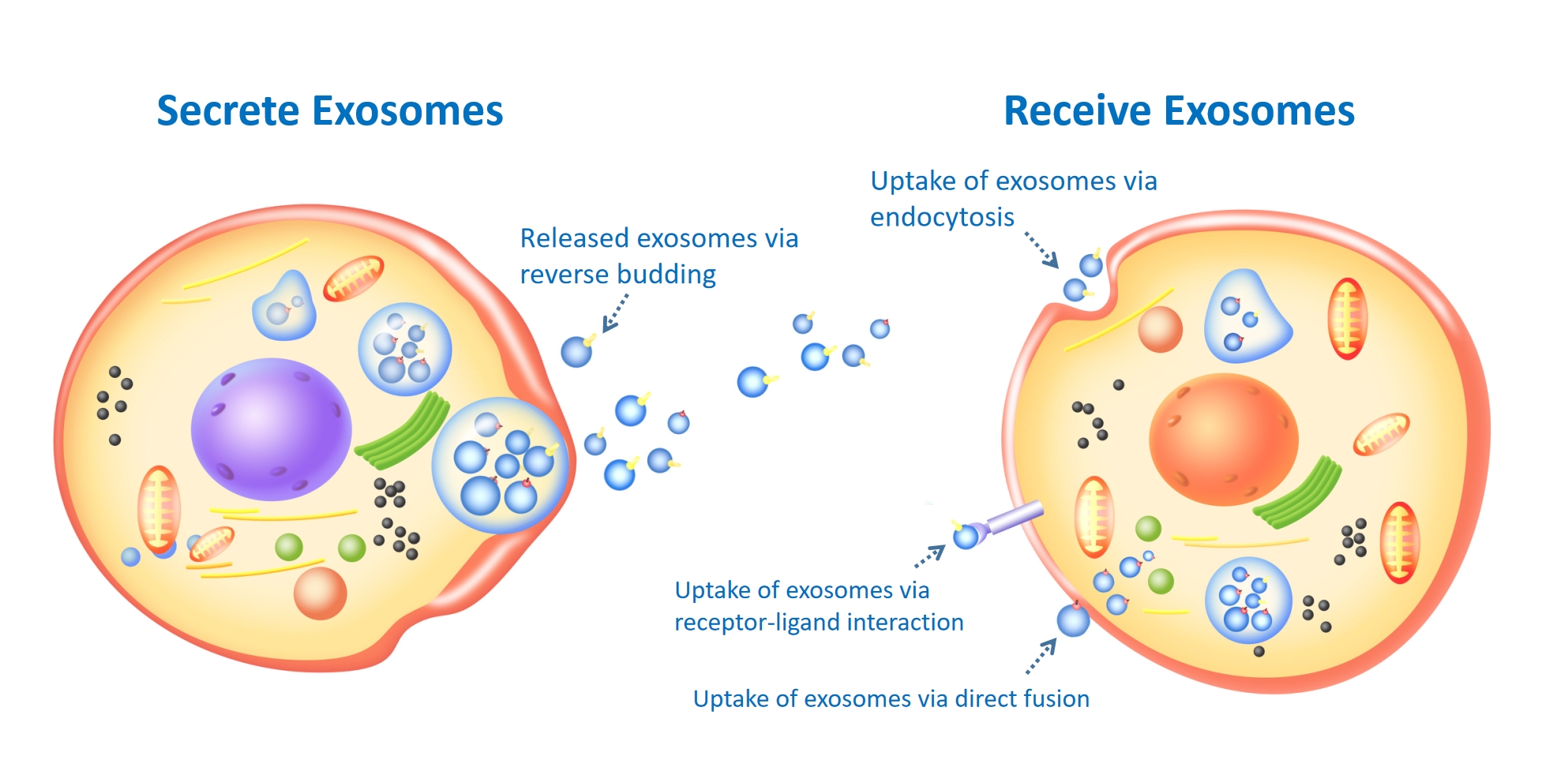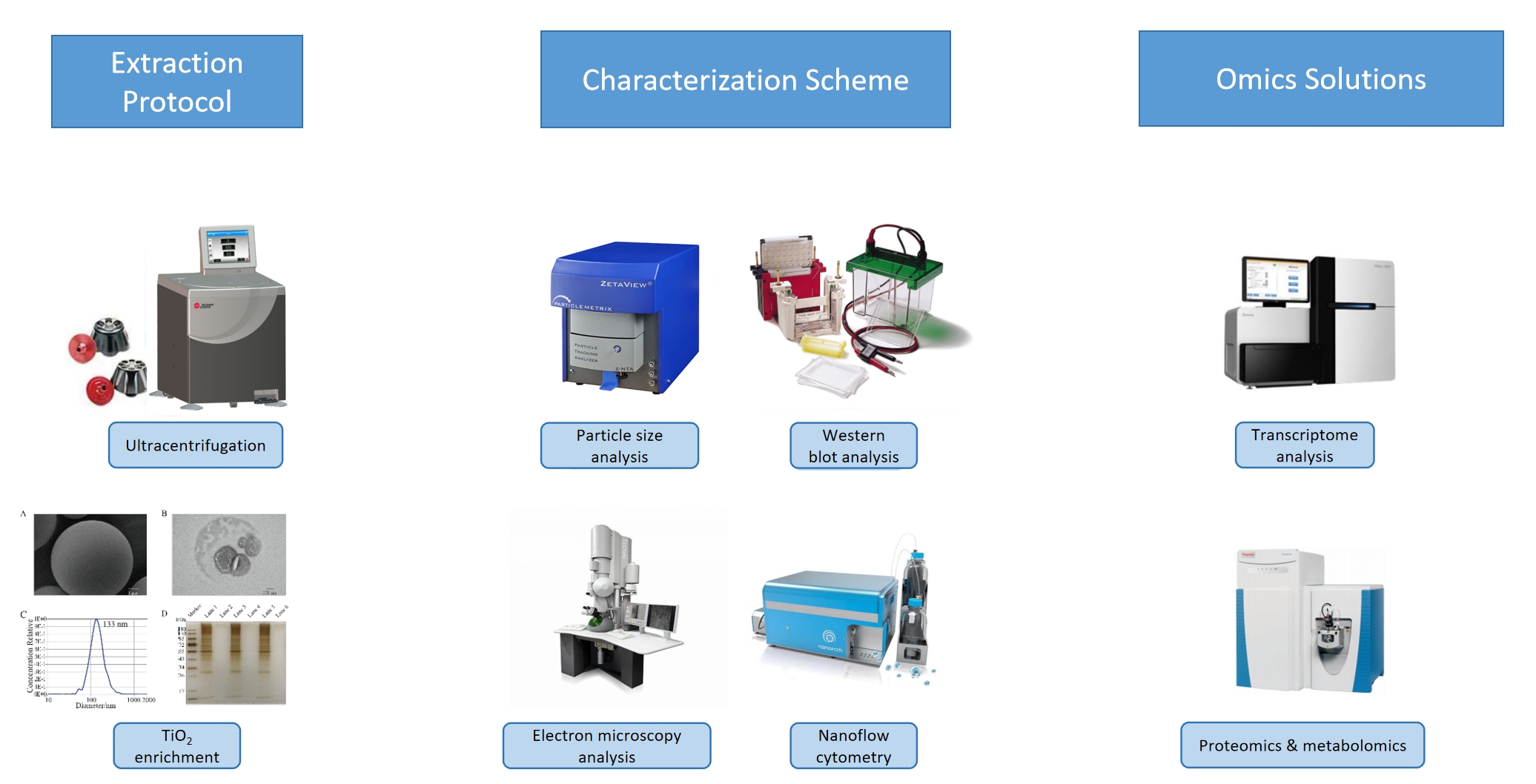Integrated Exosome Omics Services: Unveiling Cellular Communication and Disease Mechanisms
- Sample Collection: We handle a variety of sample types, including cell culture supernatants and bodily fluids.
- Exosome Isolation: Utilizing both traditional and innovative methods to suit different sample volumes and types.
- Molecular Characterization: Including electron microscopy for morphological analysis and Western blotting for protein identification.
- Omics Analysis: Transcriptomics, proteomics, and metabolomics, utilizing the latest high-throughput technologies to analyze the content of exosomes.
- Quality Control and Reporting: Rigorous QC measures are in place to ensure high standards, with comprehensive reporting at each step.
Introduction to Exosomes
Exosomes are small vesicles, approximately 30-150 nm in diameter, secreted by various types of cells. They encapsulate proteins, nucleic acids, and lipids from their cells of origin. Present in almost all biological fluids—blood, urine, saliva, milk, ascites, tears, and more—exosomes facilitate a novel intercellular communication system, influencing physiological states and disease progression.

Figure1. Functions of Exosomes
Why Focus on Exosome Omics?
Combining transcriptomics, proteomics, and metabolomics provides a holistic view of human tissue and cell structure, gene function, and molecular interactions. This integrative approach to studying exosomes aids in deciphering mechanisms of disease onset, offering new avenues for biomarker discovery, drug delivery systems, disease therapy, and physiological regulation.
Technical Challenges and Solutions in Exosome Research
Extracting and characterizing exosomes pose specific challenges due to their small size and complex composition. Our service incorporates:
1. Extraction Methods
Including ultracentrifugation—the gold standard, polymer precipitation, and cutting-edge TiO2 enrichment for material-specific exosome isolation.
2. Characterization Techniques
Adhering to the International Society for Extracellular Vesicles' (ISEV) 2018 guidelines, we employ a range of characterization methods such as electron microscopy, nanoparticle tracking analysis (NTA), and Western blotting to ensure detailed profiling of exosomes.
Our Comprehensive Exosome Omics Solutions
Our service offerings cover every aspect of exosome research:

Customized Research Protocols
Understanding that each research need is unique, we offer tailored protocols to meet specific project requirements. From project inception through to data analysis and reporting, our expert team provides support and guidance, ensuring that your research objectives are met with the highest standards of scientific rigor.
Contact Us
Our experienced team are ready to assist you in exploring the microscopic world of exosomes and their significant potential in research and therapy. Contact us to discover how our exosome omics services can advance your research frontiers.
How to order?







